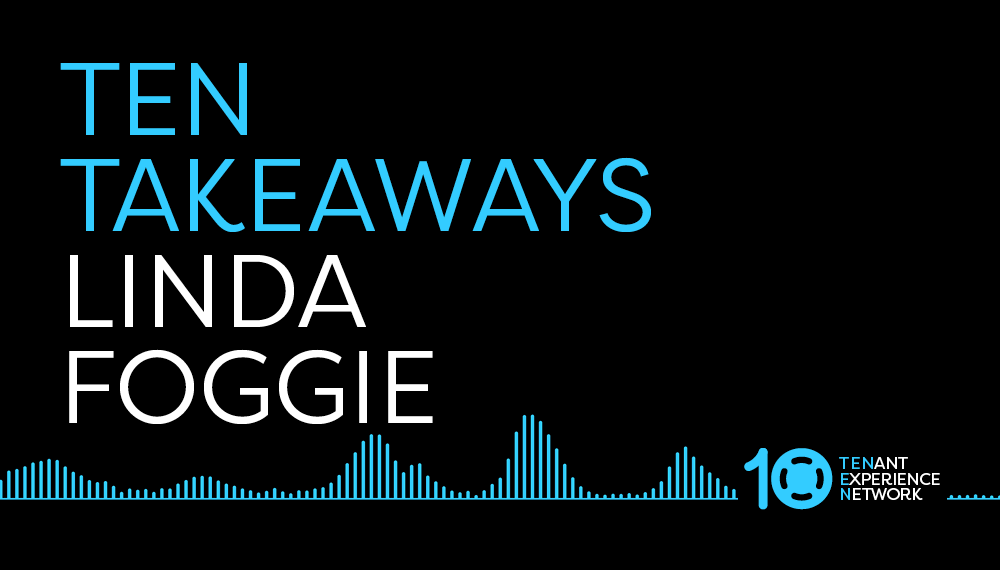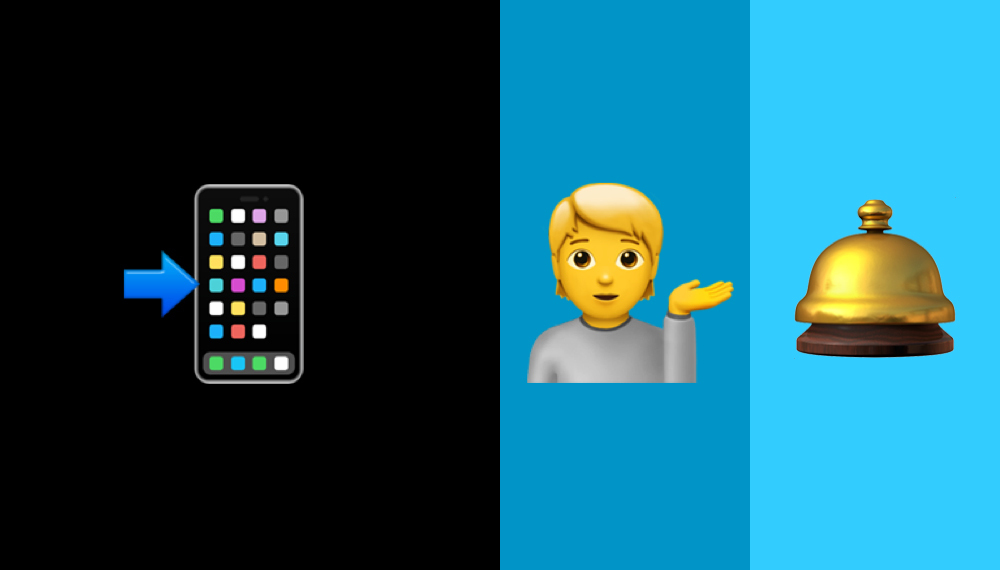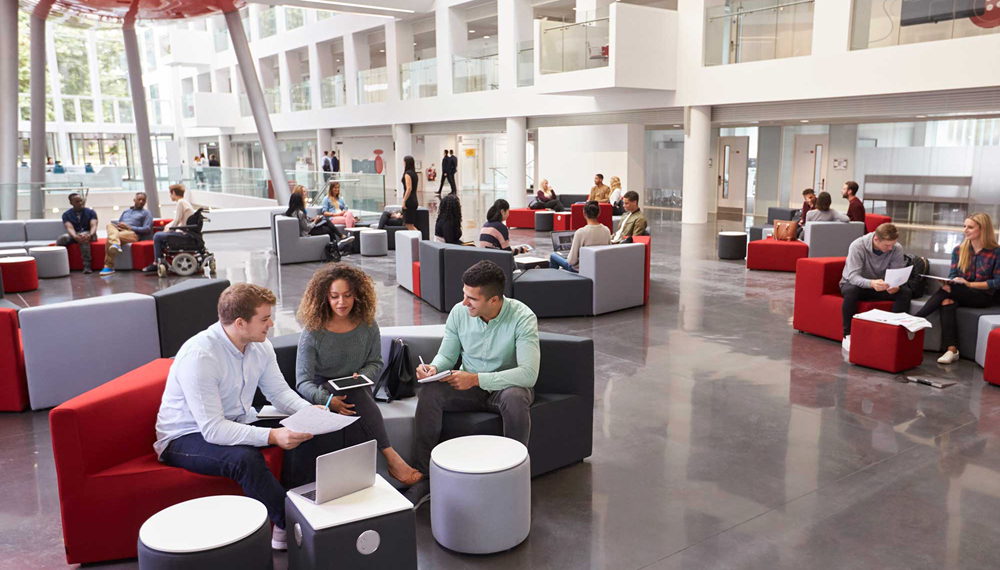
TEN Takeaways from Linda Foggie, Executive Vice President - Head of the East USA at Turner & Townsend
ICYMI: HILO’s David Abrams hosted Linda Foggie, Executive Vice President – Head of the East USA at Turner & Townsend to chat about designing human, safe, healthy and sustainable spaces. Here are a few of our takeaways:
Move jobs strategically
Linda Foggie shares that she is an architect by trade, and having a strong foundation in architecture and design has established her credibility in the real estate industry. Looking back on career moves, she tells David that “I’ve been slow to move, I think, but when I do, it’s strategically important and I like to say that I like to move into a role where about 85% of the role, I could do in my sleep all day long, stuff I know how to do, but I do like for there to be about 15% of the role that’s a challenge to me because I still have a number of working years ahead of me and I like to be learning and growing.”
Be a people person
When David asks Linda about why she was uniquely suited for her role, she explains that she has “a deep, deep respect and passion around people, developing people, creating opportunities for people, making impact for people, and from this seat in this role, I also sit on the board here at Turner & Townsend. It just allows me a really unique opportunity to have both a broad and a deep impact on people and their lives and their trajectories and their careers, and that is very satisfactory to me.”
Support your team
On every episode of TEN, David offers our guests an imaginary $100k of extra budget. Linda tells David that she would spend the money on her team. She says, “My staff are fantastic. They’re wonderful, they’re smart, they work hard. And so I would probably take them somewhere fun and nice and allow them to do something that they’d just enjoy to get a break.” She continues that they have been working harder and longer hours during the pandemic and many live apart from their families. Being able to support her team with something fun is important to her and we couldn’t agree more that an organization with strong morale performs better too!
Office still has a place
Linda shares that “[The] office still has a place, it’s still relevant, place is important for people. And even though I don’t mind, it’s good that this work from home experiment, to me, has given voice to people. And so, people and employees will demand flexibility and maybe it’s good for their life. I also, as a business leader, recognize these leaders in these companies, we still are running a business. We have clients that we need to serve and take care of, and so trying to balance that against what our employees need so that they remain happy is ever present for us, and I think people are working really hard to try and figure that out. And so I think offices will continue to have a place, although work from home is productive and no one would argue that. I think there’s something to be said about the ability to build the culture of your firm and to keep your culture strong and unified.”
Raise up your talent
Looking towards the future of work, Linda explains that it’s important to mentor your employees. She tells David that “there’s always this element of mentorship, which sounds like a very formal word, but just the raising up of talent, is how I call it, and businesses still need to be able to do that. And a lot of that happens informally and in-person, and not on Zoom.” Being able to foster the growth and development of her team is critically important to their success, and Linda acknowledges that the office may need to evolve to ensure this.
‘Resimercial’ spaces are the future
Linda teaches David a word that architects have coined for the combination of residential and commercial, dubbed ‘resimercial’. She explains that “when I was designing my space at 30 Hudson Yards for Wells Fargo, we had such opportunity to do really cool and fun things there, but we do have we built these living room settings, so the meeting rooms, they’re the same size on a floor plan as a conference room with a table, but instead of putting a rectangular table, we put sofas and floor lamps and it would just be a different setting, and so people just want choice and flexibility.”
Spaces need to work
When David asks Linda about how she thinks we will define and deliver tenant experience in 2021 and beyond, she tells us that the largest expense a company will incur beyond people is space. She explains how “space is important, but it’s because space costs all this money, it needs to work, it actually has to do his job and attract and draw people in and be highly functional and beautiful and appealing to people all at the same time. And so, I think that there’s a move towards designing space in a way that’s very human.” Linda reminds us that “we came out of not just a health pandemic, but also a social pandemic, a racial reckoning that happened in our country and all of this, believe it or not, changes the way that people think and what they desire and demand from employers and alternately, from space.”
Make space design human
Looking at the way we design spaces, Linda explains to David that there is an increased importance in considering all people. She shares how “you always think of natural light as a very beautiful thing, people are very attracted to spaces where there’s flooded with natural light, but if you are autistic or on the spectrum, this could be very damning for you to try and work. And so people need choice, so we’re designing spaces to make sure there’s some spaces that aren’t flooded with natural light, so that they can work. And we’re being thoughtful about the patterns on the floor, as if you’re epileptic, they can really bother you. And so just thinking through all those things, designing spaces that are very human, very highly functional, but there to support, so the space is working for the people, ’cause it does, is really what we’re saying people think about.”
Individualize talent engagement to fight churn
As we are facing the “great resignation” as companies fight to retain top talent, Linda shares that “finding a way to keep your people engaged, your talent engaged and connected to your business and to your client is not easy. It’s actually a difficult thing to figure out across the five generations in the workplace, what they each want and need, it’s different, it’s a very individualized approach now, as we talked about before. So that’s one of the things that is a challenge, but also I always look at these things as an opportunity for us to learn and grow and be better as leaders and as a business, they will cause us to, they will demand us to, and so I’m approaching it that way, but it’s taking up a lot of energy and time.”
We would like to thank Linda Foggie for joining us on the TEN podcast and for sharing her journey, from early beginnings in commercial real estate services and being client-side, to now leading her team at Turner & Townsend.
If you’d like to hear more of Linda’s interview, click here. Stay tuned for more episodes and takeaways from leading professionals and industry experts who all have something to say about experience in the built world, and the impact that technology is having on the largest asset class in the world, commercial real estate. Until then, wishing you all continued success in building community where you work or live.
- August 23, 2021


